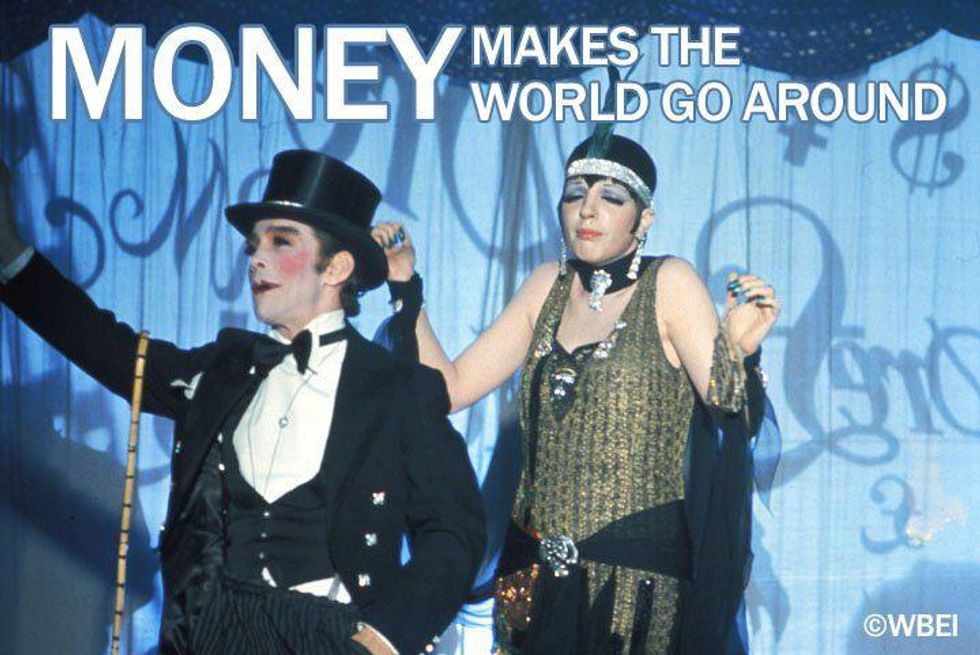As I have been doing musical theatre since I was 9 years old; it is a topic of conversation I will often riff on. Very frequently do I hear an acquaintance say "I want to go see 'Hairspray' on Broadway" and unfortunately I have to break the news that "Hairspray" is not on Broadway anymore. There is always a shocked and confused response after delivering such crushing news. I hate to break it to you, but Broadway shows do not last forever. I know, my heart went from tapping the 42nd Street dance break to physically breaking, but it's true.
Broadway is a business
Broadway is not only expensive for you to see; it's immensely expensive to produce: with all the sets, costumes, stars... The list goes on and on.
There are often several reasons why your favorite Broadway show is no longer running in a theater on the Great White Way. Other than possessing poor material and receiving bad reviews it usually involves talent contracts, space rental, awards, and always money.
"Starring _________"
A lot of Broadway shows will headline a film or television star in order to corral a large fan base to attend the show. Daniel Radcliffe starring in the 2011 Revival of "How to Succeed in Business Without Really Trying" is a grand example.
Having a high profile actor perform as the lead in the production is usually a scheduling challenge. The performer is normally committed to a numerous amount of projects from television shows to movies throughout the year, so the final performance date is set when they sign the contract. As the lead actor is usually a large source of revenue for the show, the production has a hard time lasting without them.
Limited Run

Unless it's the next "Phantom of the Opera" or "Wicked", the show will not run forever. Investors and the producers can set a "Closing date," which is a date when the production will conclude. It is not unheard of for these productions to be extended, but they will usually finish when it was announced.
"She Loves Me" on Broadway will open on March 17th and run until July 10th, 2016.
Productions produced by "The Roundabout Theatre Company" are almost always limited runs. Roundabout, a nonprofit theatre company, produces a handful of productions, plays, and musicals. They do a lot of revivals, and new work as well.
Shows are limited engagements for a variety of reasons. It's often because a limited run is a more concentrated date range for the audience members to attend the performance. Sometimes musicals or plays are not huge blockbuster hits, like "She Loves Me," and will not last very long with an "open ended run" (no final closing date). It is a financial move to alert the audience that they only have so long to see it, so the spectator capacity will hopefully be at a better percentage.
Other times the physical theater building was only booked for a certain amount of time with that production and has already contracted another show to be renting the space later in the year.
The Tony Award Goes to...
Andrew Keenan-Bolger and Sarah Charles Lewis in "Tuck Everlasting"
A lot of productions that come to the Great White Way are dependent on the awards and nominations to spread the word about their show. Unless the musical is a mega hit like Broadway's "Hamilton," the show's revenue is partly dependent on awards to advertise the performance.
Validation of art should never be needed for the artist, but is absolutely necessary for the investors of the production. If a show does not have any Tony Award nominations then it's almost a guarantee that production will not be running for much longer. Lots of politics surrounding such a topic...
"Tuck Everlasting" was a musical, this year, that received one single Tony Nomination and closed after only running one month on Broadway. Originally an open ended run, it was abruptly shut down. It closed for a variety of reasons, and the minuscule nomination number was definitely a deciding factor.
Money
As the Emcee and Sally Bowles sing in Kander and Ebb's "Cabaret"
"Money Makes the World Go Round."
If the audience capacity of a production is under a certain percentage, investors will no longer want to continue funding that show. If it's not being seen it's not making money.























